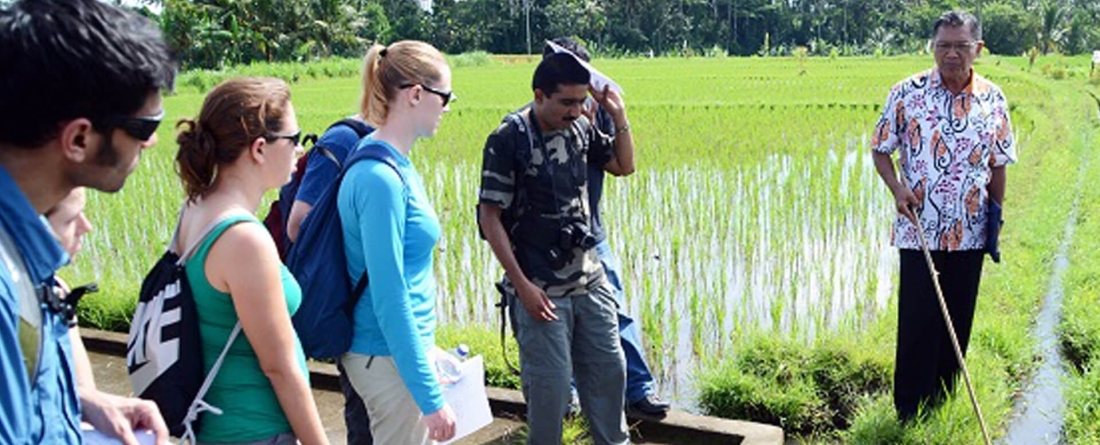
Social-Ecological Systems, Environmental Policy, and Sustainable Development
Sumatra, Bali, Jakarta, Java, North Sulawesi, North Sumatra and Flores
Term: Winter
Course: PLCY689I
Indonesian place names like Bali, Java and Sumatra resonate with exoticism for Westerners. This historical image has its roots, perhaps, in the country’s great and unique diversity and complexity. The archipelago’s 17,000 islands comprise one of the most diverse countries on the planet – biologically, ethnically and linguistically. Indonesia is home to at least 600 languages, 300 ethnic groups, one of the three great remaining tropical rainforests and one of the richest, most biodiverse marine reef systems in the world. Indonesia is a young country, having declared independence from the Netherlands in 1945, but nonetheless is today the world’s largest Muslim nation, third largest democracy in the world, fourth largest country by population, and one of the biggest emerging economies. Indonesia continues to grapple with how to hold its bursting diversity together in a single, modernizing nation in a way that also firmly confronts the problems of climate change, multiculturalism, good governance, geopolitical tensions, poverty and biodiversity conservation. As such, the country is emblematic not simply of its historically exoticized uniqueness, but of the complex global problems we all face in the 21st century.
This graduate-level international development and environmental policy field course examines the systemic interconnections between Indonesia’s environmental challenges and development strategies with a focus on the interface between local governance systems and global policies, especially in the face of climate change. Understanding that most such challenges involve multiple stakeholders, we study how ground-level problems are mitigated or exacerbated by national and global government policies and where local efforts may better inform policy, paying special attention to indigenous systems and what they can teach us about sustainable development, livelihood security, and climate policy.
Visiting several of the main islands of Indonesia – Bali, Sumatra, Flores and Java – the course focuses on:
- Indigenous systems of environmental management and understanding such as the complex adaptive subak system of rice terraces, irrigation, and water temples in Bali.
- Forest conservation and its place in climate change mitigation and adaptation, including deforestation and the expansion of oil palm plantations, carbon emissions from forest and peatland burning, wildlife habitat conservation, indigenous and local forest management and REDD+.
- Coral reefs and marine protected areas in the famed Coral Triangle, which comprises some of the healthiest remaining reefs on the planet.
- Local governance and adaptation measures, the country’s decentralization policy, and democratic development and human rights.
- Discussions with leading government officials, top research experts, local farmers and fishermen, and NGO and IGO leaders, with intensive meetings in Jakarta and Bogor.
Throughout the course, we experience the rich and fascinating nature and culture of Indonesia – the country’s diverse religions and complex communal traditions, stunning music and theater, ancient temples, beautiful landscapes and biodiversity and wonderful people.
